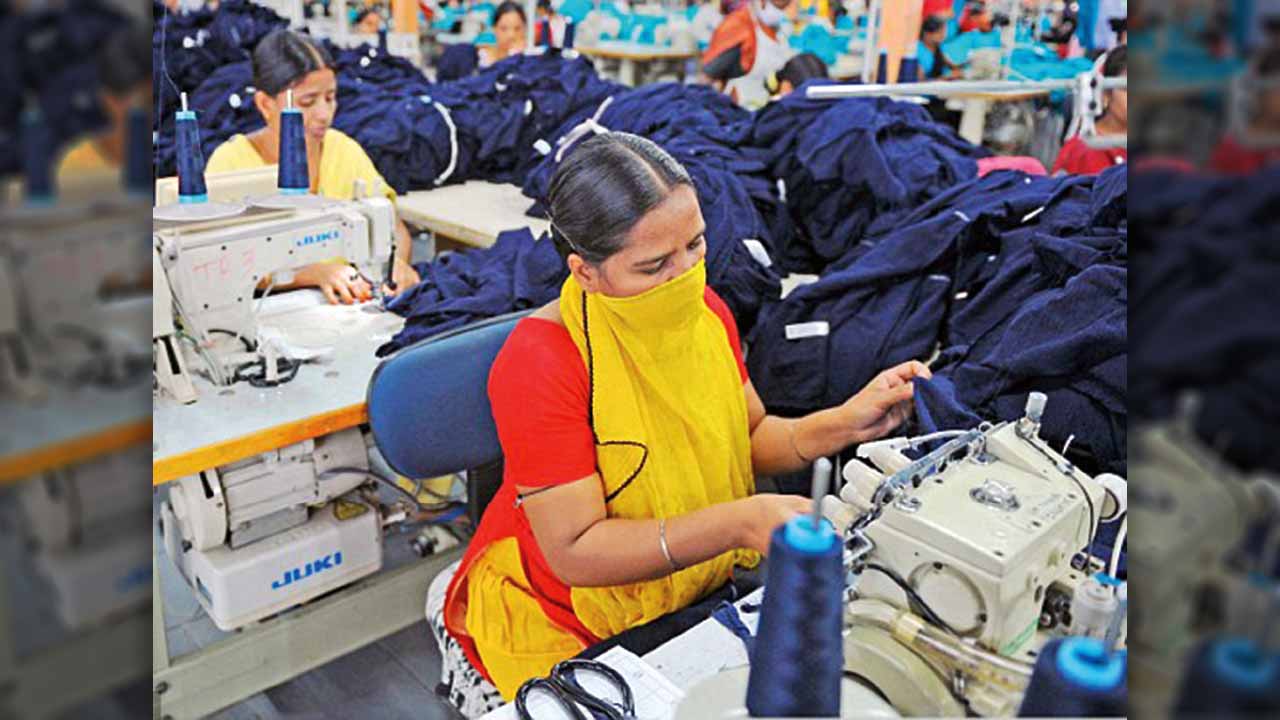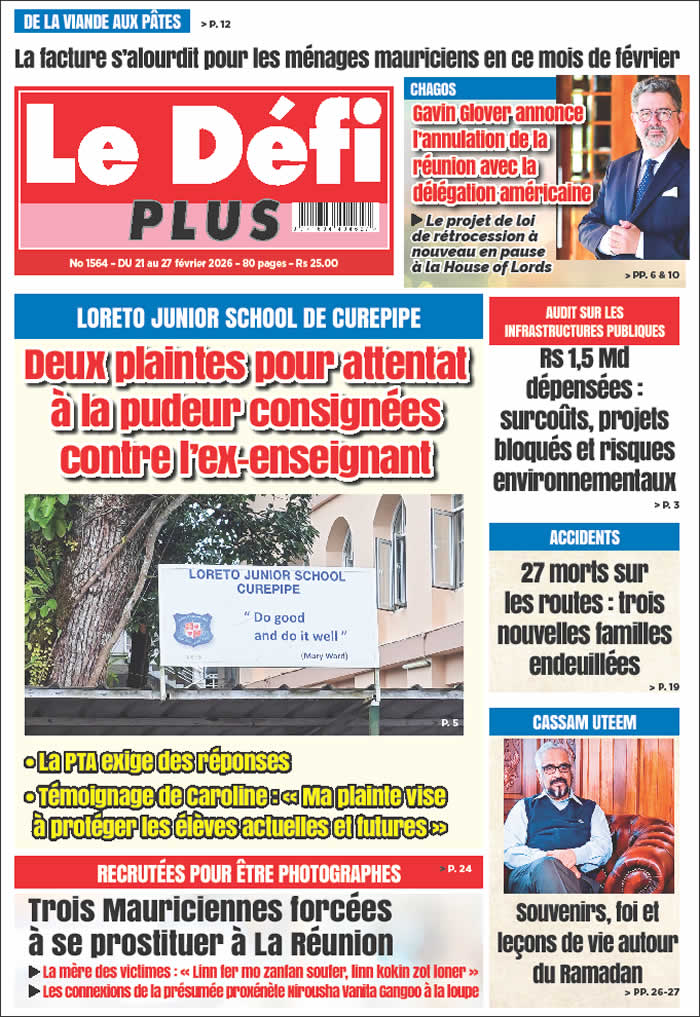
The socio-economic transformation of Mauritius has been remarkable. However, as many other countries, Mauritius is facing increased global competition and several economic headwinds. In response, a new development model is being adopted to realise the Vision 2030, which is to become an inclusive, high-income country.
Vision 2030 requires that Mauritius moves onto a higher growth path and that growth is equitably distributed among all the segments of the population. Growth will, therefore, be:
- Enabled by increased innovation, more efficient public institutions, world class infrastructure, skilled labour force, as well as better access to the global market place; and
- Driven by key sectors of the economy where Mauritius will develop a competitive advantage internationally such as agriculture, financial services, ICT, ocean economy and tourism.
Growth Enablers
The growth enablers will set the foundation for a conducive business environment for higher growth. Industries that constitute “Growth Enablers” are listed in the figure above. Across these sectors, there are overarching and recurring themes such as innovation, quality of institutions and governance, fixed and human capital investment, connectivity as well as economic integration.
Innovation
Structural reforms would need to be implemented in various sectors to enable growth. Innovation should prevail across all dimensions, including product development and process optimisation, to increase value added growth in the economy. There is a need to move away from the reliance on transfer of innovation and technology by multinational companies and to focus on developing technology domestically. To this end, investment in science and technology, funding for R&D in the identified growth driving sectors, as well as the creation of an institutional environment that supports technological change will be given priority.
Governance
Institutionally, processes will be streamlined, public services upgraded and governance improved and enhanced to make Mauritius more business-friendly. Legal and regulatory frameworks will be established to enable growth driving sectors such as the financial services and ICT sectors to prosper. These strategies on innovation and governance will go hand in hand towards enhancing total factor productivity within the economy.

Fixed and Human Capital Investment
Mauritius must continue to invest in its factors of production, both fixed and human capital. The investment in fixed capital will focus on physical infrastructure, such as port, roads, rail and utilities, to expand the productive capacity of the economy. The investment in fixed capital will not only improve service provision to the day-to-day lives of the population, but also assist in the re-industrialisation of the country’s growth driving sectors. With the labour force expected to contract, there is a need to maximise the utilisation of limited human resources. This requires education and skills development that will equip the population with the know-how and skills to successfully compete in an era of rapid digitisation.
Economic Integration
Internationally, Mauritius will pursue economic diplomacy to capitalise on its rich cultural and ethnic diversity as well as geographical location to expand its economic space and integrate into the global value chain. Mauritius can connect the English and French-speaking countries with its effectively bilingual population, and position itself as the gateway to Africa for Asian, European and Middle Eastern businesses. In addition to these advantages, Mauritius ranked first in Africa for Ease of Doing Business by the World Bank (2016). This strategy matches emerging opportunities in Africa with the resources and expertise available in Mauritius. It calls for enhanced integration with the global economy so that local industries can benefit from a larger market and hence increasing returns to scale. The forming of strategic partnerships will allow local industries to acquire knowledge and technology to further boost productivity.
Growth Sectors
The growth enablers would provide the necessary productive capacity and improvements for the growth sectors to better compete on a global scale.
Agriculture
Higher value-added processing activities will be developed in the agriculture sector. This strategy requires innovation in product development and a more integrated value chain from primary producers to manufacturers. A shift towards sustainable agricultural practices and ecofriendly methods of production would be expected as Mauritius aims to improve food security.
Financial Services
The strategies for the financial services sector seek to transform Mauritius into an international financial centre of substance. A sound legislative and regulatory framework will be put in place to enable the development of new products and the provision of a wide range of services.
Information and Communication Technology
A key strategy for the ICT sector is to export Mauritius’ existing expertise to the rest of Africa. Economic diplomacy will expand the market for Mauritian firms and promote cross-border businesses. Domestically, institutional support structures, physical communication networks and training schemes to produce a skilled labour force will be enhanced to complement this strategy.
 Three-year Strategic Public Investment Plan (2017-2020)
Three-year Strategic Public Investment Plan (2017-2020)
Total public investment over the period 2017-2020 is estimated at Rs 116.9 billion. For FY2017/18, total public investment will amount to Rs 42.3 billion, of which Rs 22.3 billion relate to implementation of new projects and the remaining Rs 20 billion will be in respect of on-going projects.
The Investment Plan covers capital projects to be executed by Ministries, Departments, Local Authorities, Statutory Bodies and State Owned Enterprises (SOEs). However, the above figures do not include capital expenditure by State-controlled financial companies and such large companies and groups as Air Mauritius, Mauritius Telecom and State Investment Corporation Ltd.
The main areas of investment are:
- Water and wastewater sectors (Rs 18.3 bn) – increasing water storage capacity, up-hauling water distribution structures and sanitation infrastructure.
- Roads, land transport and drains (Rs 32.3 bn) – improving public transportation, increasing mobility and access through roads and addressing road safety.
- Energy sector (Rs 18.0 bn) – increasing power generation and distribution infrastructure.
- Social and community development (Rs 21.7 bn) – social housing, up-hauling and construction of land drainage structures, construction and upgrading of schools and health infrastructure.
- Port development (Rs 4.4 bn) – increasing berthing capacity, improving and enhancing port cargo handling capacities.
- Airport development (Rs 3.4 bn) – cargo and Freeport structures and parking stands for higher capacity airplanes.
- Public order and safety (Rs 5.4 bn) – equipment and infrastructure for the police services and judiciary.
- Administrative and other projects (Rs 13.5 bn) – construction of administrative city and other Government structure.
Out of the total public sector investment for FY2017/18, 58% will be spent for the construction of new infrastructure, 23% on rehabilitation and upgrading of existing infrastructure and 11% on acquisition of machinery, equipment and software.
Manufacturing
The global changes that the manufacturing sector is facing require new strategies to be developed to spur production and exports. This will include ensuring that Export Oriented Enterprises and Domestic Oriented Enterprises adopt new technologies, and are capable of entering new market segments through product diversification and process re-engineering.
Ocean Economy
There is great potential for the ocean economy to generate higher levels of development for Mauritius. For example, food and energy security can be enhanced via the use of marine resources while economic development can be facilitated through ocean-related tourism. Mauritius will thus form strategic partnerships and attract foreign investment to acquire knowledge and technology to develop higher value-added products such as cartilages from marine resources. This will help local small and medium-sized enterprises (SMEs) move up the value chain for more inclusive growth.
Tourism
The tourism sector will pursue diversification strategies. The tourism base will be diversified through economic diplomacy to establish more flight routes and increase the country’s connectivity. At the same time, tourism products will be diversified to expand the range of our offerings to complement our pristine natural assets such as beaches and coral reefs.
Performance Measures
The indicators in this section provide a measure of effectiveness for the strategies put in place to achieve the Vision. They include income, equality and quality of life.
Equality
As the economy renews focus to achieve higher growth, there is a need to ensure that the growth is inclusive. To this end, strategies have been developed to ensure shared prosperity including:
- creation of home-based employment opportunities for women and the ageing population by offering information technology-enabled services (ITeS) such as knowledge process outsourcing within the ICT sector;
- implementing a Government procurement policy that supports entrepreneurship and local companies; and
- expansion of consumer base through economic diplomacy so that local SMEs can reap economies of scale.
In 2012, Mauritius’ Gini coefficient was 0.41, which places Mauritius at the 82nd position among 143 countries, for which such information is available. For comparison, the Gini coefficient for the top 25 countries range from 0.2 to 0.32.
Mauritius targets to move into this group of countries and improve its Gini coefficient to 0.31.
Quality of Life
Higher and more inclusive growth will raise the economic standard of living of all Mauritians. In addition, strategies have been developed to ensure Mauritians have access to affordable and quality healthcare and housing, and avenues to pursue their interest in arts, culture and sports. The environment will also be protected so that all can enjoy nature and the great outdoors. The country’s Human Development Index (HDI) will be used to monitor the progress of the quality of life. The HDI is a composite statistic of life expectancy, education and per capita income indicators, which are used to rank countries into four tiers of human development. In 2015, Mauritius scored a HDI of 0.78, which places it at the 64th position among 188 countries. Nineteen countries had similar HDI scores in the past. They have experienced an average improvement in HDI of 0.08 over a 15-year period. On the basis of this rate of improvement, the HDI for Mauritius is expected to increase to 0.81 by 2020 and 0.86 by 2030.
 J'aime
J'aime














